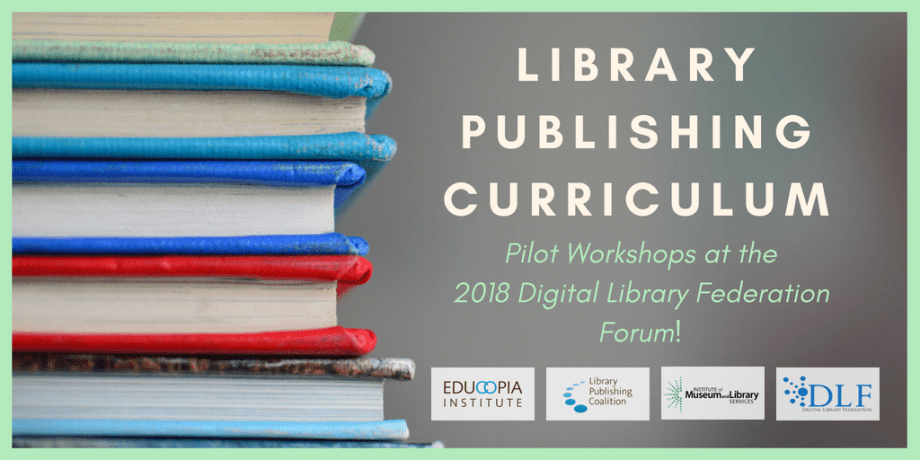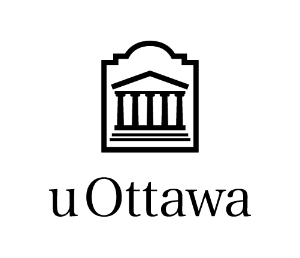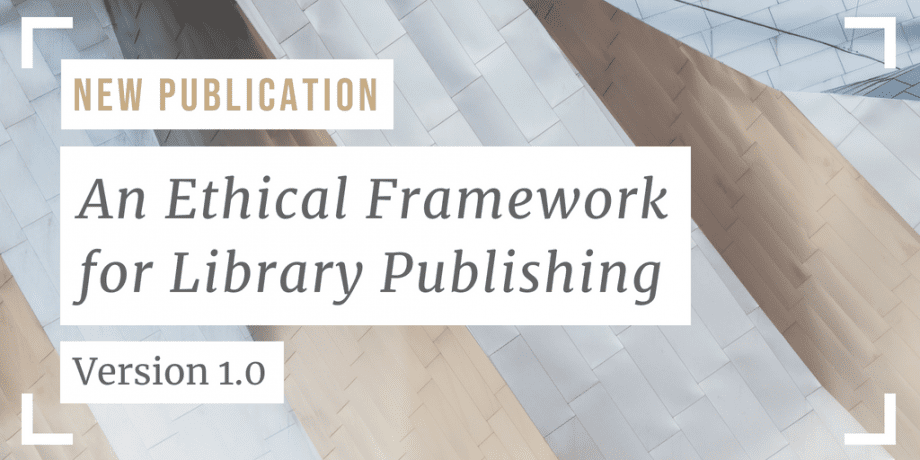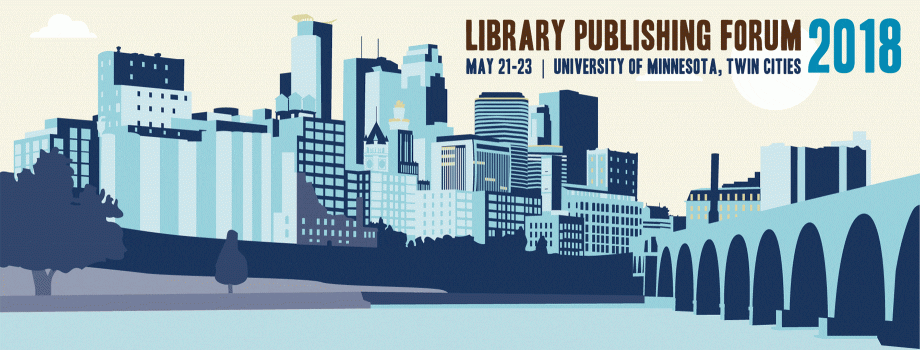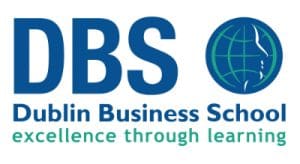
August 7, 2018
Library Publishing Curriculum: Policy module released
By Melanie Schlosser
We are very excited to announce the release of the fourth module of openly licensed curriculum materials created as part of the ‘Developing a Curriculum to Advance Library-Based Publishing‘ project. The Policy Module covers how library publishers develop policies that guide specific areas of their work. In this initial release, it is focused on policies related to copyright, diversity, and digital preservation, and guidance on creating legal agreements. The module was created by Sara Benson, Harriet Green, Merinda Kaye Hensley, and Janet Swatscheno (University of Illinois at Urbana-Champaign Library); and Katherine Skinner and Melanie Schlosser (Educopia Institute).
The Policy Module joins three other modules published by Educopia Institute and the Library Publishing Coalition this year: Content, Impact, and Sustainability. Each module contains an introduction plus 4-7 “units” that address topics of interest. Each unit includes the following components: a narrative, a slideshow with talking notes, activities for use in a physical or virtual classroom for workshops and courses. A fifth module will be released in 2019. Titled “Introduction,” it is being developed by the project’s advisory board, and provides helpful background and synthesis for learners and instructors.
Workshop opportunities
A set of pilot workshops (virtual and in-person) are already underway. An ongoing list and registration information for these workshops is maintained by the project team and is available here.
In-person workshops: We will be holding a pair of in-person pilot workshops for the Sustainability and Content Modules at the 2018 Digital Library Federation Forum in Henderson, Nevada in October. Learn more and apply (deadline August 24).
Virtual workshops: Registration for the Impact virtual workshop is now full, but look for announcements about more virtual workshops this fall.
More about the curriculum
The Library Publishing Curriculum is a suite of synchronous and asynchronous professional development offerings for librarians that are open and free under a Creative Commons Attribution (CC-BY) license for anyone to offer or adapt. Each module has been authored by field experts, and each is roughly the equivalent of a 12 hour “course.”
This dynamic, extensible, multimedia curriculum is intended to empower librarians to meet local demands to launch and/or enhance scholarly publishing activities. This project is a partnership of Educopia, LPC, the Public Knowledge Project, NASIG, and BlueSky to BluePrint, generously funded by the Institute for Museum and Library Services.
Curriculum editors: Sarah Lippincott, Independent Scholarly Communications and Digital Scholarship Consultant; Melanie Schlosser, Educopia Institute; Katherine Skinner, Educopia Institute; Hannah Ballard, Educopia Institute; Nancy Maron, BlueSky to BluePrint
